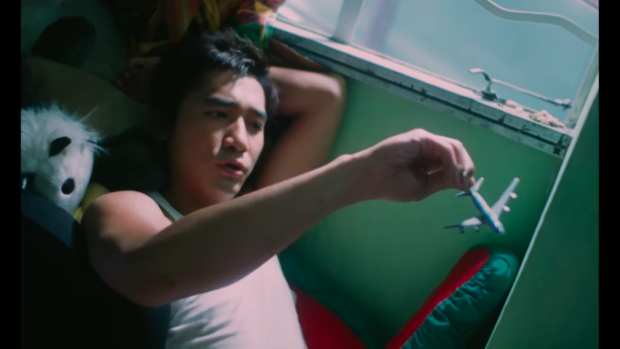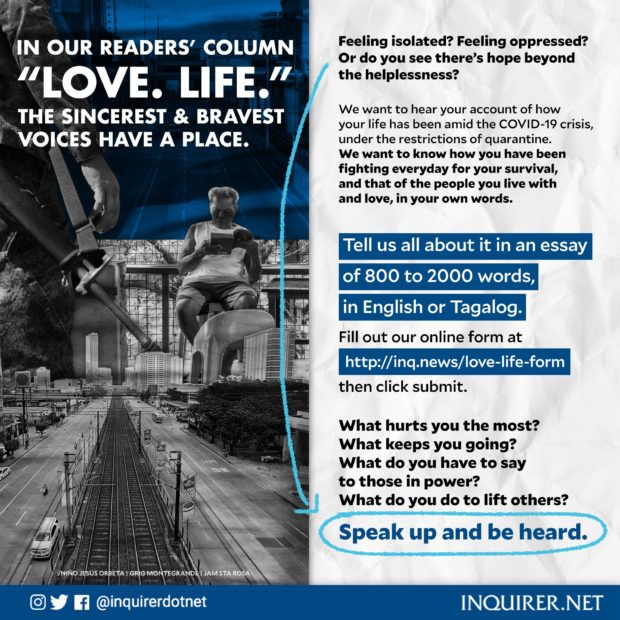Time, a past life, and dear Tony Leung

Tony Leung. Image: screenshot from official trailer of “Chungking Express” via YouTube/Block 2 Distribution
Tony Leung Chiu-wai, arguably one of the best actors of 20th century world cinema and auteur Wong Kar-wai’s muse, has a Facebook page. I can’t know for sure if it is really his or a fan’s or a manager’s thinking it wise that since Tony is starring in a Marvel superhero movie, it would be good to open a social media account for him. I posted a comment congratulating the star on the news of “Shang-Chi and the Legend of the Ten Rings,” and he replied. I clicked the like button as if I knew him. As if I knew him. When you’ve watched his movies for years, it feels like you do.
It all started with “Chungking Express.” The second time I watched it, I was living in Shanghai, China on my own, sharing a flat with two other people. It was 2008. I viewed the film in our small messy living room, strewn with fake DVDs. I sneaked the movie in while a flatmate was on pause from watching six seasons of “The Sopranos” as a contemplative exercise whether to leave a marriage or not. I didn’t know what to say to her. I think it is too much pressure, so for whatever it’s worth, it’s good that she has the series.
As for the movie, I knew for sure what to say to describe it, being better than how I remembered it when I watched it in the 1990s: plotless, fragmented yet emotional, a mood. It was an indie, art house favorite with Asian faces like mine. Wong Kar-wai knew how to hold someone’s attention and point it to where he wants you to look. Cop 223 played by Takeshi Kaneshiro was as handsome as ever, but he was quickly forgotten when Cop 663, Tony Leung, appeared on screen. He was not handsome in the conventional sense of fine symmetry but attractive in the way he could make a woman’s heart have an erection with just one look. The characters in Wong Kar-wai’s world knew it, such as Maggie Cheung’s in “In the Mood for Love.” And the effect may be the same for men, as with Leslie Cheung Kwok’s character in “Happy Together.” Leung’s natural ability to make anyone swoon is a useful talent for someone who began his career in comedy.
During that time, I watched a lot of Hong Kong cinema, mostly triad movies where murderous gang members had time to eat a bowl of noodles in between shooting each other. There is a memory of me crouching while passing from Central to the Mid-Levels escalator, like Faye Wong did in the movie and looking up to where Tony Leung’s character lived. Chungking Mansions was as gritty in real life when I went there with friends and passed by the stalls Bridget Lin ran into as a down-on-her-luck smuggler. The snack bar, Midnight Express, where their stories would intersect, was by then a 7-Eleven convenience store in the middle of party district, Lan Kwai Fong. Those scenes where mixed with other unforgettable Tony Leung movies set in Hong Kong, like “Infernal Affairs” and “2046.”
I even recall eating at the restaurant opened by his wife, fellow Cantonese acting royalty, Carina Lau, and seeing his signature scrawled like graffiti against a beige wall. It surprised me how much I still remembered of the inconsequential details, over the bits I forgot when I wrote the first draft of a collection of travel essays based on the time I worked abroad as an OFW. Millions of Filipinos leave every year to work outside the country driven by the promise of better opportunities, yet only a sliver of what they experience gets written down. What we know about travel and movement is a privilege generally written from the point-of-view of the straight, white man armed with passport and currency, welcomed at all borders.
The memories did not come back to me chronologically as they happened but was rooted and connected to each other, based on what scenes emerged when I wrote it by hand. Science says time is a psychological construct affected by the subjectivity of the person living in it. During the last round of edits before it was brought to the printers this year, I couldn’t help but feel jealous of the past self I wrote about in those pages, the one who complained of a 40-hour train ride to Tibet. I felt sorry for myself in lockdown, in dreaded fear of bad aerosols. What would I give to be in her place again, inside a bus, a plane, anywhere and off to a new adventure, without a face mask? I read about the places I went to with pathetic regret and sweet longing. Maybe who I was before was better than who I am now. Why did I poke fun at her in the essays when I was benefiting from the good decisions she made? It is who I am now and who I will turn out to be that is untested.
Tony Leung’s movies are special for me because they are markers of a remembered time far from life today in a pandemic, where we are all still stuck and already exhausted. People send me old photos of when we used to see each other in real life. I send a reply from the present, hoping my future self will remember: we’ll see each other again. Looking back elongates the past like a rubber band, including things you never thought would have heft and substance, like sitting close to someone else, brushing up against each other. Were they better? Maybe not. It just feels that way because it is over and you made it through. A lot of things are better now (pandemic effects not withstanding). Most of the time I am optimistic that things will turn around.
Last June, the restored version of the Wong Kar-Wai classic “In the Mood for Love” was shown in an outdoors film festival in Bologna. I know this because Tony Leung shared it on his Facebook page. There it was, a close up, was it the scene where Maggie Cheung slaps him as if he were her husband? His face is projected on a screen, bigger than life and larger than anything you can watch at home. He will soon star as the villain in Marvel’s first superhero movie with an Asian lead. At 59, he looks older in photos, but cinema will hold the images of his youth forever. As his fellow Cop 223 asked, “If memories could be canned, would they also have expiry dates? If so, I hope they last for centuries.” It would be nice to watch the scenes again, projected in a movie house. One can hope.
_
Josephine V. Roque is an arts and lifestyle journalist, a Palanca Award-winning essayist, and lecturer at De La Salle University. Her first book, “How to Ride a Train to Ulaanbaatar and Other Essays,” was published by Penguin Random House SEA.
RELATED STORIES:
Essential Reading according to author Josephine V. Roque
My dad made me believe in heaven
To drag, thank you for making me love what I see in the mirror

Image: INQUIRER.net/Marie Faro




















